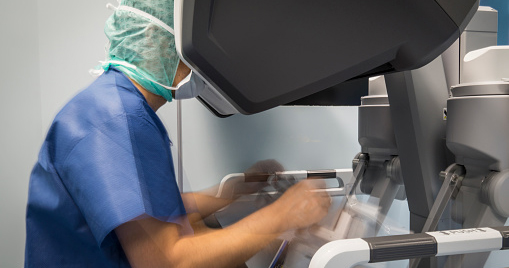While it may feel embarrassing to talk about, urinary incontinence—or lacking complete control of your bladder—is common and treatable. Many people face this issue, which can affect individuals of all ages and lifestyles. The skilled urologists at WMCHealth offer various treatments, from medications to minimally invasive surgery. We can help relieve your symptoms and improve your quality of life.

What is Incontinence?
Urinary incontinence is the loss of bladder control. It can affect both men and women. Weak or overactive muscles that control urine release can cause unexpected leakage, ranging from occasional dribbles to a complete inability to hold urine.
Symptoms of Incontinence
While your specific symptoms may differ, understanding them can help you manage the condition. Symptoms of incontinence may include:
- Having an accident when you cough, sneeze, laugh, or exercise
- Feeling an uncontrollable urge to urinate that comes on suddenly
- Having to urinate frequently
- Waking up many times at night to urinate
- Wetting the bed
Types of Incontinence
There are five types of incontinence. A complete diagnostic work-up by a urologist will help determine your type and severity.
- Stress incontinence: Urine leaks when you put pressure on your bladder with daily actions, like coughing, sneezing, laughing, exercising, or lifting something heavy.
- Urge incontinence: If you have a sudden, intense urge to urinate even when your bladder isn’t full, you may be experiencing urge incontinence. This condition can cause the need to urinate often, including throughout the night.
- Overflow incontinence: This condition happens more frequently in men than women because it is usually the result of prostate-related pressure on the urethra. It can cause frequent or constant leaking of urine due to a bladder that doesn’t empty all the way. It can also be related to diabetes or cardiovascular disease.
- Functional incontinence: Sometimes, a physical or mental health condition can prevent a person from making it to the bathroom in time. For example, a person with dementia may not recognize the urge to use the bathroom.
- Mixed incontinence: Some people can experience more than one type of urinary incontinence—typically, it’s a combination of stress incontinence and urge incontinence.
Treatment for Incontinence
Behavioral Changes
Urinary health can be improved by making some modifications to daily life, including changing diet, performing Kegel exercises, scheduling urination, and avoiding heavy lifting.
Medications
Depending on the type of incontinence, medicines can stabilize the bladder, while others will relax it.
Procedures
WMCHealth offers several injection options, including bulking agents and Botulinum toxin (Botox) injections. Neuromodulation devices can also be implanted to stimulate the nerves to improve bladder control.
Surgery
Sometimes, surgery is the best option to restore urinary health. We may suggest the Sling procedure, which can be done in both men and women. An artificial urethral sphincter is another device that can be used in men with stress incontinence.
Innovative Services for Incontinence at WMCHealth
Our Incontinence Care Division offers diagnostic and therapeutic procedures for urinary incontinence and bladder control for males and females. We also provide specialized care for patients with neurological disease, including spine injury or stroke, which can cause incontinence. Reconstructive surgery is also available to correct vaginal prolapse and urethral penile disease. You can feel confident in our expertise in:

- Laparoscopic and robot-assisted surgery
- Laser and cryogenic therapy
- Minimally invasive prostate surgery
- Robotic surgery
- Bladder reconstruction
- Collagen therapy
- Greenlight laser for enlarged prostate
- Rezum® for enlarged prostate
- Bulking agents for incontinence, including Bulkamid®
